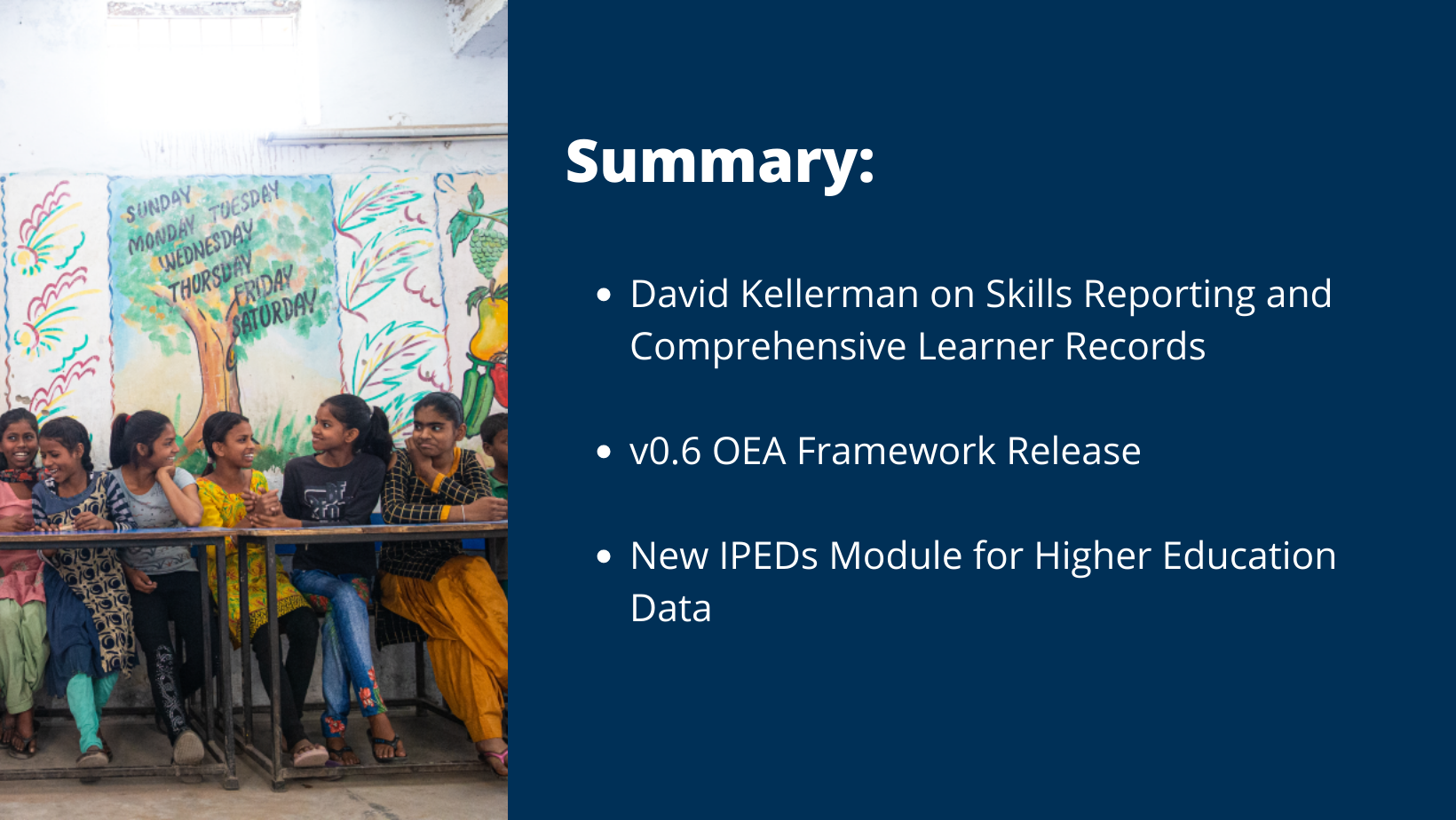-
OEA Overview
Open Education Analytics (OEA) is a community of education systems and tech partners, coordinated by Microsoft Education, collaborating to develop open source data analytics solutions for the education sector built on Azure Synapse Analytics and PowerBI.
- OEA Website: https://openeducationanalytics.org
- OEA GitHub Repository: https://github.com/OpenEducationAnalytics/OpenEduAnalytics
- OEA Overview Video: OEA Overview on YouTube
Data Analytics and AI
Over the past few weeks, we have seen an increase in OEA contributions by our partner and communities of education systems. These contributions are part of OEA’s open-source strategy, because the more education data modules and education use case packages are available that are aligned to the OEA framework, the more value OEA will have to education systems and partners in accelerating their data and AI journeys.
The newly published module and package contributions by our GitHub community include:
- The IPEDS module was contributed by our OEA Partner, Trivium BI. This module provides important US public data about higher education institutions’ performance nationally. The module provides a Power BI template for this data, allowing institutions to review their admissions, enrollment, financial and graduation rates and benchmark themselves against selected peer institutions.
- How to Implement Azure Machine Learning with a generalized machine learning modeling template that can be used by other education systems as a starting point for creating their own customizable data or machine learning pipelines using the OEA framework.
We will be announcing newly published contributions in this newsletter each month. Stay tuned for some exciting new ones in February!
OEA Tech: Helping Education Systems Setup Their Modern Data Estate
Towards the goal of making modern data services and data science easier to use, the latest release of the OEA framework, v0.6, has significant updates to help automate data engineering and data science tasks at the framework level.
The new updates in v0.6 include: • Incremental batch data ingestion through the OEA framework
- Delta batch data
- Incremental (additive) batch data
- Snapshot batch data • Enhanced module design simplifying data ingestion for standard batch scenarios • OEA Framework catalog of Synapse pipelines • Common data extraction pipelines • End to end orchestration demonstration • Machine Learning tutorial package
OEA Community Spotlight: David Kellerman on Skills Data
On the US OEA call on January 26, Professor David Kellerman from the University of New South Wales inspired the US OEA Community with his vision of how data can be used to infuse learning experiences and to better bridge students’ education to employment journeys.
He described how the Australian higher education system currently aligns course learning outcomes to degree qualifications which are mapped to industry-based professional standards. He shared his thinking on adapting this current alignment to more granular skills mapping and reporting, which could be captured in each student’s Comprehensive Learner Record with verified credentials of skills issued by the university. This would provide a much richer picture of a student’s real capacities instead of a single data point (GPA), that would be more valuable for prospective employers.
The US OEA community, representing state departments of education, national organizations, and large districts, was highly engaged in this discussion of changes in how skills and capacities are reported by an education system. They pointed out challenges to this vision, such as developing statewide data governance policies. Dr. Kellerman and the dialogue inspired the community’s thinking about the future of US P20W reporting systems.
Partner Enablement
Quarterly OEA Partner meetings took place in 2 time zones on January. Our OEA Partners launched the discussion providing insights on their own OEA related work. Spyglass presented its new 10-week OEA solution package for Higher Education on Azure Marketplace. Then Community Brands described its work to develop a predictive model of students at risk with Greenwood Academies Trust in the UK, and how it developed principles of responsible AI as part of that work. Trivium BI also shared their technical contribution of the new IPEDS module, inviting partners to use this data source as part of their solutions.
During the meetings, the OEA team provided Azure technical updates from Ignite, as well as a deeper dive into the use case example of Digital Learning Insights. Various existing OEA modules can be leveraged for this use case, such as Education Insights, Microsoft Graph, and Clever modules.

